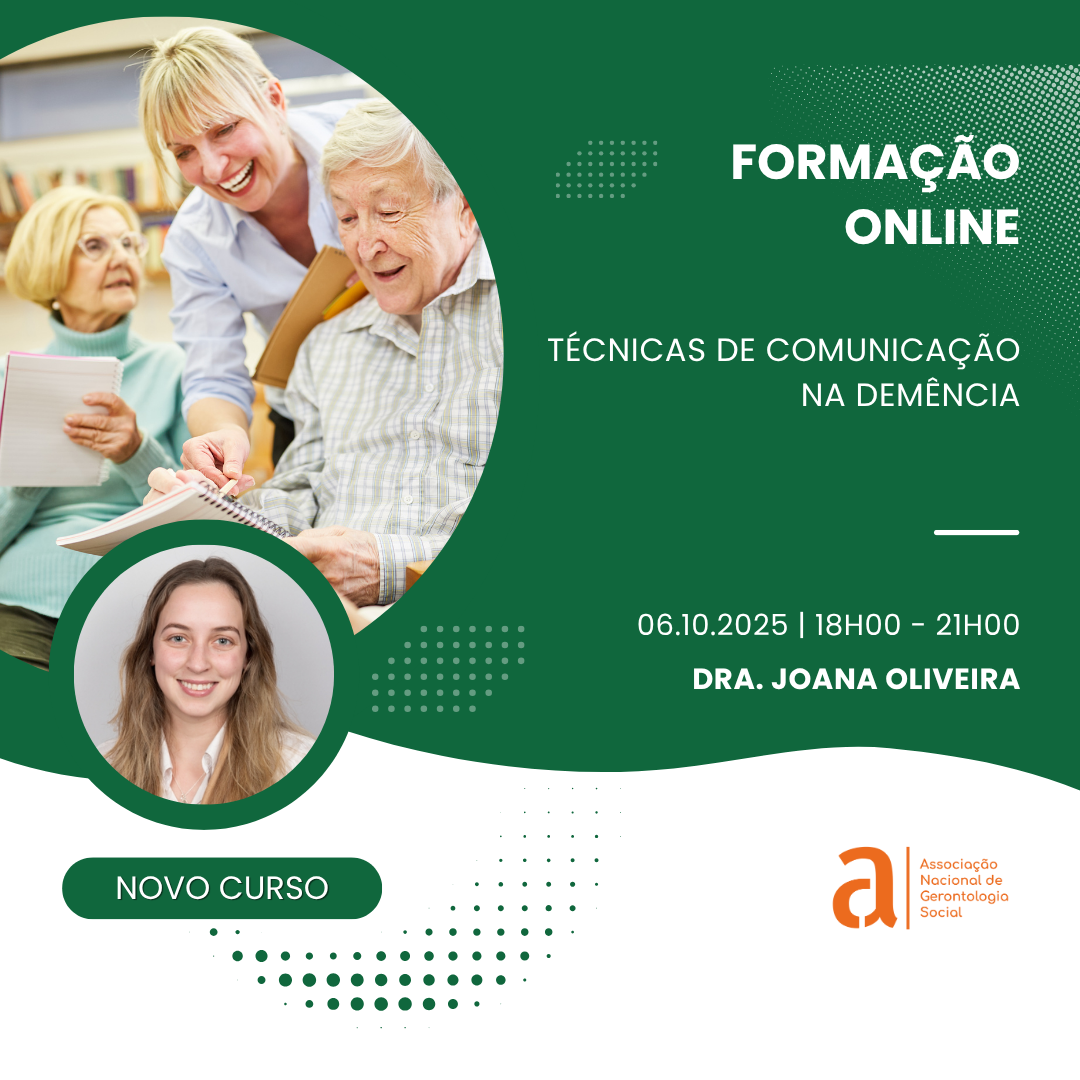The course “Communication Techniques in Dementia” aims to enable professionals and caregivers to communicate more effectively, empathetically and humanely with people living with different types of dementia. Communication is one of the main challenges in dementia care, especially as the condition progresses and cognitive and verbal skills are affected.

September 30 | Drawing up Work Schedules (5th Edition)
30.00€ – 50.00€Price range: 30.00€ through 50.00€

October 14 | Early Stimulation: Pedagogical Practices for Children from 0 to 6 Years Old
20.00€ – 40.00€Price range: 20.00€ through 40.00€
October 6 | Communication Techniques in Dementia
20.00€ – 40.00€Price range: 20.00€ through 40.00€
SKU:
EPECTI-1-2
Categories: Courses, New, Registration
Description
Recipients
Recipients
- Psychologists, direct action assistants and informal caregivers.
- Psychology students and researchers in the field of ageing and mental health.
- Volunteers and members of institutions for the elderly.
Objectives
Objectives
- ● Understand the concepts of pathological ageing;
● Recognize the main types and clinical manifestations of dementia;
● Distinguish between verbal and non-verbal communication and identify their
components;● Understand the communication changes caused by dementia;
● Apply effective communication techniques tailored to the person with dementia;
● Reflect on the role of communication in well-being and in controlling the
behavioral changes associated with dementia.
Contents
Contents
- Ageing and Dementia
Concept of aging and protective factors
Dementia: definition, types, clinical signs
Demographic ageing and social impact
Fundamentals of Human Communication
Verbal and non-verbal communication
Axioms of communication
Barriers and influencing factors
Communication changes in dementia
Language impairment
Verbal vs. non-verbal communication
○ Communication and memory
Communication techniques with people with dementia
○ Verbal and non-verbal strategies
The communication environment
What to avoid in interactions
Case studies
Analysis of real situations and simulations
Practical strategies for responding to specific communication difficulties
Group discussion on good practices and common mistakes
Evaluation and Certificate
Evaluation and Certificate
CERTIFICATE
The trainee will receive a certificate with the number of hours of training, inserted into the SIGO platform, through the Associação Teatro e Construção, an entity certified by DGERT.









